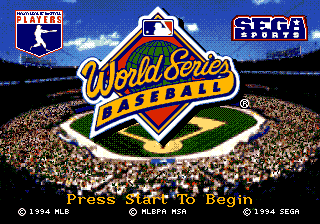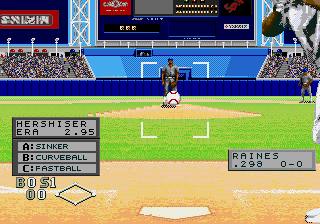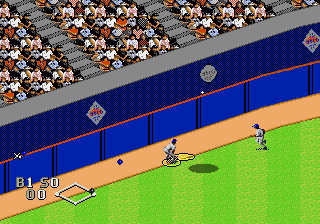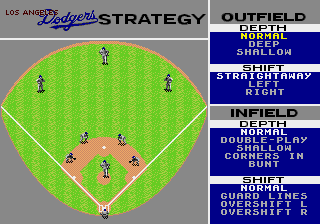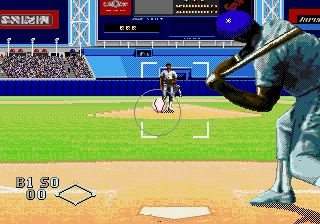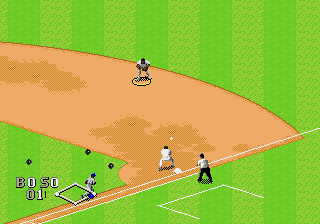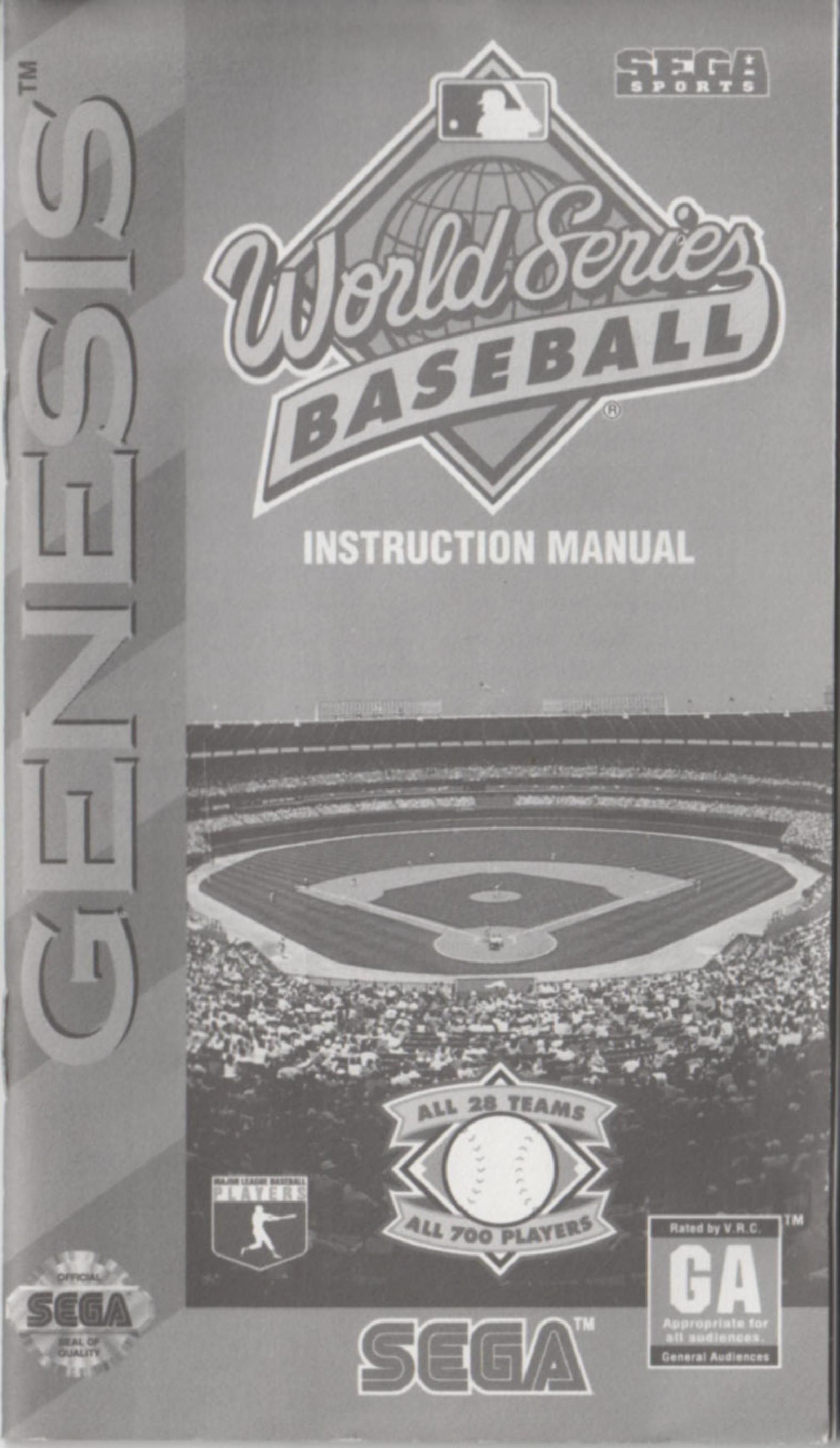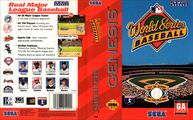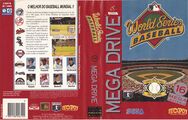Difference between revisions of "World Series Baseball (Mega Drive)"
From Sega Retro
m (Text replacement - " Lancelot Nelson" to " Lancelot Nelson") |
m (Text replacement - " Terry Thomas" to " Terry Thomas") |
||
| Line 217: | Line 217: | ||
*'''Music:''' [[Sam Powell]] | *'''Music:''' [[Sam Powell]] | ||
*'''Lead Tester:''' [[Vincent Nason]] | *'''Lead Tester:''' [[Vincent Nason]] | ||
| − | *'''Testers:''' Todd Morgan, Stephen Bourdet, Jerry DeYoung, John Amirkhan, [[Michael Baldwin]], [[Greg Becksted]], [[Dusty Bedford]], [[Michael Bench]], Daniel Caraballo, Glen A. Cureton, [[Chris Cutliff]], Daniel P. Dunn, [[Mark Fabela]], Eric Fong, Richard Gangwish, [[Lawrence Gibson]], Roman Greco, Rick Greer, Randall Hauser, [[Tracy Johnson]], Darin Johnston, [[Dan Jung]], [[Jeff Junio]], Kevin Labounty, Jeffrey L. Loney, [[Michael Madden]], Julio Martinez, [[Lancelot Nelson]], Mike Palser, Christopher Pepper, Kevin Seiter, Timothy Spengler, Siegfried Stangenberg, [[Mark Subotnick]], Terry Thomas, [[Conan Tigard]], [[Matt Underwood]], Gregg Vogt, Paul Walker, Greg Watkins (Gregg Watkins), Christine Watson, Richard Wong (Rich Wong) | + | *'''Testers:''' Todd Morgan, Stephen Bourdet, Jerry DeYoung, John Amirkhan, [[Michael Baldwin]], [[Greg Becksted]], [[Dusty Bedford]], [[Michael Bench]], Daniel Caraballo, Glen A. Cureton, [[Chris Cutliff]], Daniel P. Dunn, [[Mark Fabela]], Eric Fong, Richard Gangwish, [[Lawrence Gibson]], Roman Greco, Rick Greer, Randall Hauser, [[Tracy Johnson]], Darin Johnston, [[Dan Jung]], [[Jeff Junio]], Kevin Labounty, Jeffrey L. Loney, [[Michael Madden]], Julio Martinez, [[Lancelot Nelson]], Mike Palser, Christopher Pepper, Kevin Seiter, Timothy Spengler, Siegfried Stangenberg, [[Mark Subotnick]], [[Terry Thomas]], [[Conan Tigard]], [[Matt Underwood]], Gregg Vogt, Paul Walker, Greg Watkins (Gregg Watkins), Christine Watson, Richard Wong (Rich Wong) |
*'''Marketing:''' [[Doug Rebert]], [[Kelly Ryan]] | *'''Marketing:''' [[Doug Rebert]], [[Kelly Ryan]] | ||
*'''Manual:''' [[Mike Yoffie]] | *'''Manual:''' [[Mike Yoffie]] | ||
Revision as of 03:29, 16 April 2024
- For non-Mega Drive versions, see World Series Baseball.
| World Series Baseball | |||||||||||||||
|---|---|---|---|---|---|---|---|---|---|---|---|---|---|---|---|
| System(s): Sega Mega Drive | |||||||||||||||
| Publisher: Sega | |||||||||||||||
| Developer: BlueSky Software, Western Technologies Inc. | |||||||||||||||
| Licensor: Major League Baseball Properties, Major League Baseball Players Association | |||||||||||||||
| Sound driver: GEMS | |||||||||||||||
| Genre: Sports (baseball) | |||||||||||||||
| Number of players: 1-2 | |||||||||||||||
|
World Series Baseball is a 1994 baseball game by Sega and BlueSky Software released for the Sega Mega Drive in the US. It is an entry in the World Series Baseball series. It is the first baseball game for the platform to have licenses from both the MLB and the MLBPA, so it has all of the players and teams from the 1994 season.
This Mega Drive version was announced alongside a different Game Gear version and a similar, but ultimately unreleased Mega-CD version. It was followed by World Series Baseball '95, also for the Mega Drive.
Contents
Gameplay
The game takes a more realistic, simulation-style approach compared to the more simplified, arcade-style approach taken by other baseball games of the time. It uses a low angle from the perspective of the catcher for pitching and hitting and employs control schemes that try to more authentically reproduce the depth and strategy of baseball. Players can choose from any of the 28 teams from the 1994 MLB season. All 28 ballparks were recreated for the game, including their scoreboards, with details such as the ivy wall at Wrigley Field or the "Green Monster" at Fenway Park. Like its predecessor, Sports Talk Baseball, it has spoken commentary.
- Exhibition: A single game against a human or computer player. The player can also watch two computer-controlled teams play.
- League: Plays a season of games that culminate in the World Series. The player can choose the number of games (13, 26, 52, or a full 162 games) and the number of divisions (4 or 6). The game uses a battery backup to save the player's progress.
- Home Run Derby: Players have 10 attempts to hit as many home runs as possible. A missed attempt is a hit that is not a home run; there are no strike-outs. The player can choose the pitch speed (70-79, 80-89, or 90-99 mph). This mode can be played by up to 8 players taking turns.
- Batting Practice: The player practices batting. There are no outs in this mode. The player can select a left- or right-handed pitcher, a left- or right-handed batter, the type of pitch, the speed of the pitch, and the venue.
Before each game, players choose a team. Players set the batting order and can also change the defensive position of each player and make substitutions. Players choose the starting pitcher and can have two relief pitchers warm up in the bullpen. Starting pitchers have more stamina than relief pitchers, but relievers can warm up to their maximum stamina while in the bullpen.
In the game options, players can select the difficulty for pitching and batting separately (Rookie, Veteran, or All-Star) and toggle auto-fielding.
Teams
| League | Division | Team | Players |
|---|---|---|---|
| American | Western | ||
| Central | |||
| Eastern | |||
| National | Western | ||
| Central | |||
| Eastern | |||
Production credits
- Designers: Chuck Osieja, Dana Christianson
- Producers: Chris Smith, Jesse Taylor, Daniel Meade, Ken Balthaser Jr.
- Executive Producer: Wayne Townsend
- Project Manager: Mark Dobratz
- Programmers: David Dentt, Larry Clague, Steven Hostetler, Kevin Baca, Brian Belfield, Bonita Kane (Bo Kane), Richard Karpp
- Artists: Chuck Osieja, Scott Seidel, John Seidel, Matt McDonald, Drew Krevi, Amber Long, Mark Dobratz, Elizabeth Anderson-Hendricks (Liz Anderson), Robert Cuenca, Kevin McMahon
- Sportstalk: Alan Maynard, Joe Shands, Fletcher Beasley
- Speech Programmer: Alan Maynard
- Sound Effects, Speech Compression Technology, Electronic Speech Systems: Fletcher Beasley
- Batting Grids and Pitching Charts: Baseball Analysis and Reporting System [BARS]
- Career Player Statistics: The Baseball Workshop
- Music: Sam Powell
- Lead Tester: Vincent Nason
- Testers: Todd Morgan, Stephen Bourdet, Jerry DeYoung, John Amirkhan, Michael Baldwin, Greg Becksted, Dusty Bedford, Michael Bench, Daniel Caraballo, Glen A. Cureton, Chris Cutliff, Daniel P. Dunn, Mark Fabela, Eric Fong, Richard Gangwish, Lawrence Gibson, Roman Greco, Rick Greer, Randall Hauser, Tracy Johnson, Darin Johnston, Dan Jung, Jeff Junio, Kevin Labounty, Jeffrey L. Loney, Michael Madden, Julio Martinez, Lancelot Nelson, Mike Palser, Christopher Pepper, Kevin Seiter, Timothy Spengler, Siegfried Stangenberg, Mark Subotnick, Terry Thomas, Conan Tigard, Matt Underwood, Gregg Vogt, Paul Walker, Greg Watkins (Gregg Watkins), Christine Watson, Richard Wong (Rich Wong)
- Marketing: Doug Rebert, Kelly Ryan
- Manual: Mike Yoffie
- Special Thanks to: Ronald Thompson, George Kiss, Jennifer Cleary (Jennifer Cleary-Haney), Trevor Bostelaar, Jason Weesner, Michael McMahon, Chris Gill, Jason Gill, W. T. Safooa, Joe Miller, Jeff Moses, Gary Gillette, Lori Niwa, Stephen Patterson, George Degolian, Norman Wood
Magazine articles
- Main article: World Series Baseball (Mega Drive)/Magazine articles.
Promotional material
Physical scans
| Sega Retro Average | |||||||||||||||||||||||||||||||||||||||||||||||||
|---|---|---|---|---|---|---|---|---|---|---|---|---|---|---|---|---|---|---|---|---|---|---|---|---|---|---|---|---|---|---|---|---|---|---|---|---|---|---|---|---|---|---|---|---|---|---|---|---|---|
|
| 83 | |
|---|---|
| Based on 9 reviews | |
Technical information
- Main article: World Series Baseball (Mega Drive)/Technical information.
References
- ↑ https://groups.google.com/g/rec.games.video.sega/c/kaNJICPzYzk/m/qLH0LtDCjwYJ
- ↑ https://groups.google.com/g/rec.games.video.sega/c/guufHlXPpUA/m/zyZIiiw8G1YJ
- ↑ 3.0 3.1 Game Players, "Vol. 7 No. 4 April 1994" (US; 1994-0x-xx), page 80
- ↑ File:World Series Baseball MD US Manual.pdf, page 31
- ↑ 1700 igr dlya Sega, "" (RU; 2001-xx-xx), page 342
- ↑ Electronic Games (1992-1995), "July 1994" (US; 1994-0x-xx), page 75
- ↑ Electronic Gaming Monthly, "May 1994" (US; 1994-xx-xx), page 38
- ↑ GamePro, "May 1994" (US; 1994-xx-xx), page 108
- ↑ Game Informer, "May/June 1994" (US; 1994-0x-xx), page 36
- ↑ Sega Pro, "May 1994" (UK; 1994-04-21), page 74
- ↑ Tricks 16 bit, "Tricks Sega Gold 800 igr" (RU; 1998-03-20), page 297
- ↑ VideoGames, "May 1994" (US; 1994-0x-xx), page 73
| World Series Baseball (Mega Drive) | |
|---|---|
|
Main page | Magazine articles | Reception | Region coding | Technical information | Bootlegs | |
| Games in the World Series Baseball Series | |
|---|---|
| World Series Baseball (1994) | World Series Baseball '95 (1995) | World Series Baseball '96 (1996) | World Series Baseball 98 (1997) | |
| World Series Baseball (1993) | World Series Baseball '95 (1994) | Nomo's World Series Baseball (1995) | |
| World Series Baseball Starring Deion Sanders (1995) | |
| World Series Baseball (1995) | World Series Baseball II (1996) | World Series Baseball 98 (1997) | |
| World Series Baseball '96 (1996) | |
| World Series 99 (1999) | World Series Baseball (2001) | |
| World Series Baseball 2K1 (2000) | World Series Baseball 2K2 (2001) | |
| World Series Baseball (2002) | World Series Baseball 2K3 (2003) | |
| World Series Baseball related media | |
| Prima's Official Strategy Guide: World Series Baseball 2K1 (2000) | |
